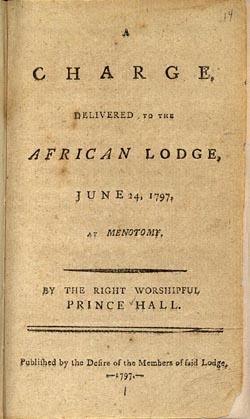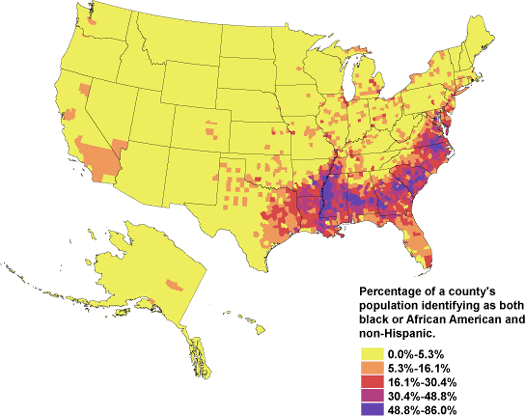Key Concepts
To exist every people needs to convey a testimony of its daily life, to express its creative capacity and to preserve the traces of its history. The heritage…[Of a people]…is the instrument of this two-way process between past, present and future…it embodies the symbolic value of cultural identities and…[is a]…reference for structuring society…[I]t…(cultural heritage) is one of the keys to understanding others (UNESCO 2002).
The National Park Service, through its legislated mission, has the mandate to preserve the cultural resources that comprise the heritage of all the diverse cultural groups that make up the American people. This course focuses on the cultural heritage of Americans of African descent and the implications of this information for identification, preservation, and stewardship of cultural resources of significance to African Americans.
The concepts that follow are key to understanding the content presented and how it is organized.
Who Are African Americans?
“African American,” according to the Census 2000, “refers to people in the United States who have origins in any of the black races of Africa (U.S. Department of Commerce, U.S. Census 2000).” Furthermore, Americans of African descent, like Prince Hall, have defined themselves in terms of their African origins since the 18th century as the manuscripts of David Smith and Prince Hall attest.
The African American population included people who reported their race as mixed, Afro-American Negro, Colored, Nigerian, and Haitian (U.S. Department of Commerce, U.S. Census Bureau, the Black Population, 2001). As these census data suggest, African Americans are a large heterogeneous group in the population with various perspectives on their heritage and valued cultural resources. In spite of their heterogeneity, contemporary African Americans are for the most part a descendent community of African peoples enslaved or free, who participated in the American Experience of exploration, settlement, and development of this hemisphere, continent and subsequently the nation. The federal censuses document their presence in every United States Census since the first census in 1790. Learn more about African Americans.
This course explores the cultural history and heritage of different African people who came to the Americas as part of the African Diaspora. The modules also examine the cultural differences and similarities among African Americans from different regions of North America at different time periods in history, for example, free northern African Americans comparatively with those enslaved in the south during the colonial period. These aspects of people’s cultural heritage may influence what contemporary African Americans value as cultural resources and their perspectives on heritage preservation. In view of the diverse intra-cultural characteristics of contemporary African Americans and their interrelationship with other people of color over time, the course also briefly explores experiences they shared in common with American Indians, Asian American and Hispanic Americans.







